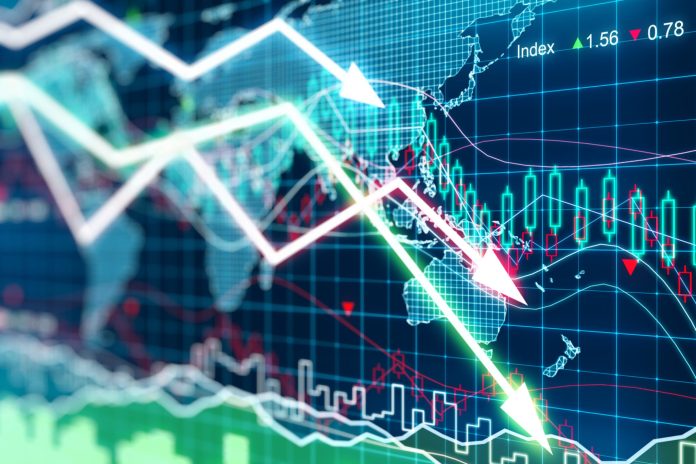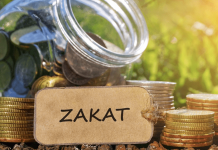As if people have not suffered enough from COVID-19! Now we are faced with a cost of living crisis, which is likely to have a much bigger impact on people, it is being reported. All we read about in the papers and on social media nowadays is the infamous four words: cost of living crisis, which is affecting millions of people around the world. The threat has been brewing for some time, it is reported. But unfortunately, this crisis comes hot on the heels of an ongoing pandemic. It has made matters difficult even for the most resilient of economies in the world.
Mauritius and the Island Nations
Closer to home, the Island nations are struggling with inflation, cost of living and fuel costs. The annual percentage change in consumer price index has been going up.
Take Mauritius for example, its consumer price index went up to 11.9% in October 2022, the highest since December 2016. It is reported that petrol has undergone three price increases totalling 30% since December 2021. The country faced a fuel price protests few months ago, the public angry about the rise in the price of fuel. Demonstrators took to the streets setting fire to tyres and mattresses to block a main road unhappy about the government’s action arguing that it does not care for poor working families who are struggling to make ends meet. More recently and as widely reported on social media, a member of the public – Nishal Joyram (educator) went on hunger strike, protesting against the high costs of diesel and gasoline, which are seriously impacting on ordinary people’s lives. Some high profile politicians, activists and members of the Avengers team praised him for his courage and said that this is a symbolic act on behalf of all the people who are struggling with the huge hike in fuel costs. In solidarity, Sanjeev Teeluckdharry, the human rights lawyer and a member of the Avengers team joined the hunger striker to show his support despite his busy schedule with high profile cases going through the courts at the moment. It remains to be seen how far this latest protest by citizen Joyram will go, in galvanizing public opinion, enough to force the government to revisit and perhaps lower the current prices of petrol and gasoline. So far, there has been a deafening silence from the government, it is hoping that the issue will go away, just like so many of the other protests. This one may be different, only time will tell, and one cannot underestimate the power of public opinion once it gathers momentum.
Also, for many Mauritians, a major concern remains the rising prices of commodities and fresh produce now at a level not seen for a long time. Inflation is now reaching levels never experienced before. The tourism sector, one of the island’s main economic pillars was hard hit by the COVID-19 pandemic, which massively reduced its foreign currency earnings. The COVID-19 pandemic put huge stress on finances in particular government borrowing. Now with the conflict in Ukraine we are experiencing one of the most alarming supply chain issues – food shortages, particularly acute in low-income countries in Africa. Both Ukraine and Russia account for about a third of the world’s wheat and a quarter of barley production, not to mention some 75% of the sunflower oil supply – all critical commodities for keeping us all fed. Amidst all this turmoil, Mauritius is juggling the impacts of soaring inflation and an abrupt depreciation of its currency, which are squeezing household budgets.

The situation around the world is not any better either. Research undertaken by journalists from The Guardian Newspaper are describing the situation as bleak and it is getting worse. The impact on lives is devastating to say the least. Sierra Leone was rocked by deadly violence from anti-government protesters at the cost of living engulfing the country earlier this year where six police officers and at least 21 civilians were killed. Hundreds took to the streets in frustration at economic hardship and rising prices to most essential commodities the media reported.
Ghana -people, businesses and traders are struggling as the cost of living crisis bites. There have been street protests asking for the removal of the Finance Minister blaming his policies, which affected the cedi badly. However, government officials are saying that the economic challenges are largely ripple effects of the war in Ukraine, which has disrupted global food chains. COVID-19 and the war in Ukraine is partly responsible, leading to a shortage of essential commodities. However, this is not the full picture. Many people and organisations blame the government for the mismanagement of the economy. Public sympathy for the government’s financial troubles has largely diminished, amid anger at corruption scandals and the huge cost of some public projects. People feel that they rather see the money spent on supporting businesses and hard-working individuals and families who have to do multiple jobs to make ends meet. The Ghanaian cedi took a serious hit falling more than 40% this year (Reuters 18 Nov), “putting enormous strain on importers of raw and processed materials. Consumer inflation rose to a 21-year high of 40.4% in October due to soaring import costs.” People are disillusioned about the future prospects in the country and are moving abroad to find work.

India -Consumer Price Inflation reached 7.8% in April this year. It fell to 6.7 in July, rose in August and September before dropping down to 6.8 in October this year.Inflation is wreaking havoc on the meagre income of families who have yet to recover from the COVID-19 pandemic. The price of almost every single item of food has gone up sharply. It is reported that the price of vegetables has doubled, and people are shopping late in the evening when they are reduced. People have also been protesting against fuel price rises, demonstrating in front of the head office of Indian Oil Kolkata earlier this year. Rising fuel prices are making it hard for ordinary Indians to fill their scooters to get to work. Operators are having no choice but to pass on the costs to ordinary people. We hear of similar stories in other sectors, like manufacturing where higher costs of transport and raw materials due to shortages are pushing prices of goods up.

New Zealand – Inflation is at its highest in 30 years. It is reported that rising living costs have far superseded COVID-19 as the most pressing issue on New Zealanders’ minds. Reports suggest that scores of people are missing meals and facing constant stress problems. Despite living frugally, each day is becoming tougher as the high cost of living in New Zealand bites. The relentless battle to cover housing and food costs is now harming people’s mental health it is reported. People’s mental health is already at an all-time low due to COVID-19 lockdown and now to be hit with a cost of living crisis is hard to bear for many who are wondering how much more can they endure before “something breaks.”
The story and pressures on the continent of Europe is no different. The eurozone’s largest economy Germanyis facing inflationary pressures too. Price rises are hitting household budgets as well as industry with the biggest impact being felt most acutely with fuel cost rocketing. Thousands of people demonstrated in Berlin on 12 November 2022 asking the government to control food prices and for the rich to pay higher taxes amidst the cost of living crisis. Inflation is at its highest in over 70 years and reached 10.4% in October. Since rising production costs have not yet all been passed on to customers, the trend is expected to continue in the coming months. The government has revised its growth expectation and forecasting a 0.4%, point contraction in GDP next year AFP reported. Is the German deteriorating economic situation likely to drag other eurozone economies down with it? It is possible and time will tell. There certainly will be knock- on effects and the question is how big the impacts are going to be. We are living in uncertain and very volatile economic times.
Ireland – One of the richest countries in the EU a fifth of the population is said to be struggling with soaring prices. Annual percentage change in consumer price index stood at 9.2% in October 2022. Rises in rent, fuel and food have pushed families into poverty and piled pressure on the government for more supports and tax cuts.Irish hauliers stage a blockade organised by the group People of Ireland Against Fuel Prices. Gas price has risen by 54%, diesel 40%, electricity 28% and petrol 24%, hitting households and businesses, leaving no one untouched, according to the Consumers’ Association of Ireland.
Italy – Consumer price inflation rose to 11.9% in October 2022, the highest in decades. Energy prices have climbed 42.6% year-on-year. Many Italians are either out of work or employed on salaries that have hardly grown since the early 2000s and have been feeling the pinch of the cost of living crisis for months. Fuel costs have been climbing and so have the prices of foodstuff and vegetables. Like many countries around the world the biggest impact people have been facing is energy cost, which has gone out of control.

United Kingdom – The Consumer Price Index rate of inflation rose to 11.1% in the 12 months to October – up from the previous figure of 10.1% in September. According to a recent BBC survey the price of pasta went up by 60%, tea 50%, and vegetables up by 65% in a year. Other everyday items such as chips, bread, biscuits and milk also recorded large increases. The Chief Executive of the Food and Drink Federation said, “Food and drink manufacturers continue to do everything they can to keep product prices down but, huge rises in ingredient, raw material, energy and other costs mean they have no choice but to pass some price rises on.” The rise in the cost of groceries has been accelerated by the war in Ukraine, which has disrupted grain, oil and fertiliser supplies from the region. A recent report from the Office of National Statistics reported that families are finding it difficult to afford energy bills, rent and mortgage payment. With inflation continuing to climb, The Bank of England had to increase interest rate a few times this year. This blunt instrument has its downside some experts say, making mortgages more expensive and impacts on economic growth.
People get it that COVID-19 pandemic saddled the government with huge debts in terms of borrowing to keep businesses afloat and people in jobs. Recent events in Europe- rampant inflation, war in Ukraine and the knock-on effect in terms of supplies chain disruptions have added to the UK’s already precarious fiscal black hole. However, the government can’t keep using the Ukraine war as an excuse anymore. Their ill-thought-out policies (the mini budget by the previous Conservative Chancellor on 23rd September 2022) spooked the market, crashed the economy causing days of turmoil, which affected the value of the pound badly. The cost of UK government borrowing, and mortgage rates also went up as a result. It is being reported that Britain is already in a recession. For thousands if not millions, in the UK, the situation is dire as we move into winter. It has become a matter of either heating your home to stay warm or putting food on the table in order to survive. It is reported that due to high energy costs there is a spike of UK “energy tourists” escaping to warmer countries like Spain, Portugal and Turkey this winter to save on rocketing energy bills. The Opposition has criticised the government and has been calling for a general election as a result of the government’s incompetency and mismanagement of the economy.
However, amid the political, economic and social woes the country is currently facing, the government and councils have been working together to help the vulnerable this winter setting “warm banks”, which are essentially public spots – places of worship or community centres, that people can go to if their homes are too cold. This lifeline to many is welcome but some have concerns over them as warm banks treat the symptom rather than the cause of the problem. It is also recognised that COVID spreads easily indoors, especially where large numbers of people are mixing for extended periods. So, another concern is that warm banks might increase the spread of COVID among those who are both most vulnerable to the effects of the virus.
There is also help from the government in terms of one-off payment to households to cover energy bills. In addition, the government capped energy bills for a typical household until April 2023. In his autumn statement on 17 November 2022 however, the new Chancellor announced that this cap is being extended for one year beyond April 2023. The new Chancellor announced a package of measures to restore stability in the markets and help the most vulnerable in society affected by the cost of living crisis. That he did to some extent, keeping their promise to pensioners. The reaction from the markets has been lukewarm though and some of the government’s critics said that it was a missed opportunity and it could have done more if it wanted to. According to the independent Office of Budget Responsibility (OBR), living standards are forecast to fall by 7% over the next couple of years. Inflation will remain uncomfortably high well into next year, as protection from high energy bills is scaled back. Taxes will rise over the next six years via a stealthy freeze in the tax-free allowances applied to everything from earnings to inheritances and national insurance contributions, so over time a greater percentage of whatever people would earn would be taken away by the taxman. Not a bright picture for millions I hasten to add. There are more strikes taking place and the disputes are over working conditions, pensions and pay. Prices are rising over 10% per year, the fastest rate over 40 years. Workers are seeing their living costs rising faster than their wages, leaving them worse off. The public had to face train strikes, overflowing bins, gridlock in the courts and disruption to other services such as mail deliveries the BBC reported.
What about the rest of the world?
Many other countries are also facing similar predicaments- increased energy costs, shortages of goods and materials and the fallout from COVID-19. It is worth highlighting though that the cost of living is not being felt equally across society. For example, the toll will be greater for people living in more deprived areas, those on lower incomes, older adults, single-parent families, people with disabilities and those from minority ethnic backgrounds. People from these groups are already more likely to have had to reduce their gas and electricity use, struggling to pay their bills and facing fuel poverty as a consequence.
After two-and-a-half years of uncertainty and turmoil due to the COVID-19 pandemic, which has cost millions of lives and untold miseries in its wake, not to mention mental health issues, we are entering another unprecedented turmoil- an economic crisis, which is pushing millions of people further into poverty and threatening livelihoods.
Global economy facing ‘uncharted waters’
It is not all gloom and doom. Just like COVID-19, this economic crisis will blow over and the economy will pick up but, might take longer than we expect. What we are seeing is all countries are experiencing a slowdown in consumer spending as higher energy and food costs eat into disposable income. To cushion the blow, most countries in Europe have introduced tax cuts, subsidies, loans, cash payments and a host of other measures to stave off a full-blown recession. For the rest of the world, the outlook is mixed. The Oil producers and commodity exporters will benefit from the price increases as demand rockets. However, as we have seen recently in Sri Lanka and a number of emerging markets, including Mauritius, with high dependence on food and fuel imports and high dollar debt burdens are increasingly at risk of social unrest and potential fiscal and sovereign debt stress.
Financial squeeze is on the
way adding to the miseries millions
are already enduring from the ongoing Covid-19
pandemic! Social unrests are on the up.
The current cost of living crisis has plunged the global economy into a precarious situation. In fact, the World Economic Forum’s most recent Chief Economists Outlook warned that the global economy is facing “significant economic danger.” In particular, experts note that national debt levels pose a threat to stability. “Debt distress is at worrying levels among lower-income countries, increasing their exposure to additional shocks, such as climate-related natural disasters and placing many in a vicious cycle of debt servicing costs,” the Chief Economists Outlook stated. Moreover, the Forum’s Global Risks Report 2022 found that government debt constituted a “critical short- and medium-term threat to the world, and one of the most potentially severe risks over the next decade.” IMF lending is expected to continue to increase as the global economy navigates “uncharted waters” in the coming months and years, as the Forum’s Chief Economists Outlook noted. Already this year, IMF lending hit a record high, with $140 billion being dispersed across 44 loan programmes, according to a Financial Times analysis.
IMF to the rescue
It has been reported that Sri Lanka, Ghana and more recently Egypt have sought or are seeking financial support from the IMF. As the cost of living crisis deteriorates further in the months and years to come, which it certainly will, we will see more and more countries particularly from the sub-Sharan region seeking help form the IMF. We should be prepared for harder times ahead, which may involve austere measures in the form of tax increases, cuts in public spending, devaluation of the national currency and much more in order to stabilise the economy. Whichever measures governments around the world decide to adopt won’t be easy but will be painful. No doubt they will have plenty of critics, but regardless they should be mindful that cuts in public spending affect in general the poor. The current economic crisis, as we see it, is not a question of problems on the demand side per se. So, authorities and decision makers will have to be careful not to make an already bad situation worse. So, the question is how much worse can it get?
Jhayraz Bhurtun
United Kingdom
November 2022




![[Message de l’Eid-Ul-Fitr 2024] Atteindre la piété… Et après ???](https://sundaytimesmauritius.com/wp-content/uploads/2023/10/Bashir-new-218x150.jpg)


![[Democracy Watch Mauritius] The Rwanda genocide started 7th April 1994, 30 years ago. Has humankind learnt the lesson? Consider Israel’s action in GAZA today!](https://sundaytimesmauritius.com/wp-content/uploads/2024/03/democracy_0-218x150.jpg)







